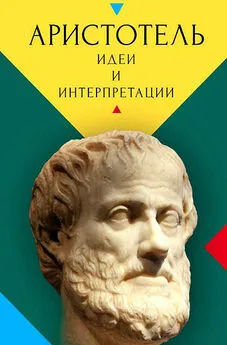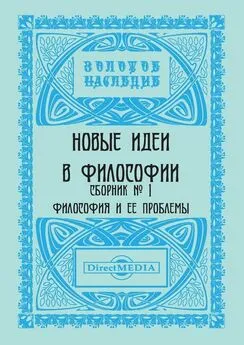Коллектив авторов - Аристотель. Идеи и интерпретации
- Название:Аристотель. Идеи и интерпретации
- Автор:
- Жанр:
- Издательство:Аквилон
- Год:2017
- Город:Москва
- ISBN:978-5-906578-31-0
- Рейтинг:
- Избранное:Добавить в избранное
-
Отзывы:
-
Ваша оценка:
Коллектив авторов - Аристотель. Идеи и интерпретации краткое содержание
Издание подготовлено при поддержке Российского научного фонда (РНФ), в рамках Проекта (№ 15-18-30005) «Наследие Аристотеля как конституирующий элемент европейской рациональности в исторической перспективе».
Рецензенты:
Член-корреспондент РАН, доктор исторических наук Репина Л.П.
Доктор философских наук Мамчур Е.А.
Под общей редакцией М.С. Петровой.
Аристотель. Идеи и интерпретации - читать онлайн бесплатно полную версию (весь текст целиком)
Интервал:
Закладка:
Valery Petroff
Aristotle’s teaching on growth and growing and the problem of identity of a human body
Aristotle has formulated his views on growth and growth in the On Generation and Perishing . This essay explores the fate of his doctrine in the posterior tradition. As our study shows, Aristotle’s theory of growth and growing holds a significant place in the history of philosophical polemics regarding the identity of the human living body, being adopted and transformed both by pagan commentators and by Christian theologians. In doing this, they developed his concept of the enmattered εἶδος or corporeal form of the growing body. Each of the following authors — Alexander of Aphrodisias, John Philoponus, Simplicius — had its own set of sources and contexts. Each theory had its own logic, its complexities and its inconsistencies. Philoponus introduced into Aristotelian tradition Neoplatonic influences, Simplicius referred to the Stoic concept of ἰδίως ποιόν. Of particular interest is the transfer of the questions under consideration to the field of theology. Origen was the first to apply Alexander’s arguments concerning the preservation of the identity of a living body to the question of the identity between the earthly body and the body of resurrection. As the analysis of Origen’s reasoning shows, he combines the Aristotelian discourse about growth and growing with the Stoic concept of seminal logos, assuming at the same time, as Platonists do, that the bodily εἶδος can exist separately from the disintegrated material substratum (the subtle body of the soul serves as the carrier of the εἶδος in this case). Origen’s critic Methodius of Olympus who mostly thinks in Aristotelian terms, identified the bodily εἶδος with the qualitative form, similar to the shape of a statue. As we point out, Gregory of Nyssa too used disparate elements of the theories in question, mechanically combining them. He also reveals Alexander’s or Galen’s influence, suggesting the dependence of the εἶδος’s characteristics on the qualities of the somatic mixture. Our review, if necessary brief, nevertheless demonstrates the existence of a powerful and heretofore untraced tradition that applied the Aristotelian doctrine on growth and growing to the problem of identity of an individual human being.
Keywords: Aristotle, Alexander of Aphrodisias, John Philoponus, Simplicius, Origen, Methodius of Olympus, Gregory of Nyssa, growth, identity, human body, risen body, On Generation and Perishing, On Resurrection , εἶδος, corporeal form, ἰδίως ποιόν, seminal logos.
М.С. Петрова
Рецепция текстов Аристотеля в латинском платонизме Поздней Античности
В статье обсуждается рецепция текстов Аристотеля в латинском платонизме Поздней Античности посредством анализа Комментария на «Сон Сципиона» (II, 14–16) и Сатурналий Макробия. Показывается, как Макробий использует тексты Аристотеля при изложении представлений платоников о бессмертии души, что именно он заимствует при передаче разнообразных естественнонаучных концепций. Анализируются текстуальные и содержательные параллели между Аристотелем и Макробием; выявляется, в какой мере Макробий трансформирует греческое знание, насколько точно передает и излагает его. Делается вывод об опосредованном использовании Макробием текстов Аристотеля.
Ключевые слова: греческое знание, Аристотель, восприятие, латинская традиция, влияние, текст.
Maya Petrova
The reception of Aristotle’s texts in latin platonism of Late Antiquity
The article discusses the reception of Aristotle’s texts in Latin Platonism of Late Antiquity be means of the analysis of Macrobius’ Commentary on the Dream of Scipio (II, 14–16) and Saturnalia . It is shown, how Macrobius used Aristotle’s texts while describing the views of the Platonists concerning the immortality of the soul, what he borrowed from Aristotle when he deals with the various theories of natural science. The article analyzes the textual and doctrinal content and parallels between Aristotle and Macrobius; it shows how Macrobius transforms Greek knowledge; discusses if he transmits and exposes it accurately. The conclusion is drawn that Macrobius’ knowledge of Aristotle’s texts is not a direct one.
Keywords: Greek knowledge, Aristotle, perception, the Latin tradition, influence, text.
М.А. Ведешкин
Тексты Аристотеля в системе философского образования IV векана примере биографии Юлиана Отступника
Настоящая статья направлена на выявление роли перипатетической философии и наследия Аристотеля в системе философского образования в середине IV столетия н. э. на примере биографии Юлиана Отступника, а также анализа философских интересов его учителей и окружения. В статье делается вывод о том, что наследие Аристотеля оставалось конституирующим элементом философского образования в период Поздней Античности.
Ключевые слова: Юлиан Отступник, Аристотель, перипатетики, Поздняя Античность, образование в Поздней Античности.
Mikhail Vedeshkin
Aristotle’s texts in the framework of philosophical education of the 4 thcentury Julian the Apostate’s curriculum
This article reveals the role of Peripatetic philosophy and the heritage of Aristotle in the system of philosophical education in the middle of the 4 thcentury AD, on an example of the curriculum of Julian the Apostate, and the analysis of the philosophical interests of his teachers. The article concludes that the legacy of Aristotle remained a constituent element of philosophical education during the late Antiquity.
Key words: Julian the Apostate, Aristotle, Peripatetics, Late Antiquity, education in Late Antiquity.
М.С. Петрова
Прояснение смысла и содержания фрагмента об опьянении, приписываемого Аристотелю, посредством Сатурналий Макробия
В работе обсуждается реконструированный по Плутарху ( Quaest. conv. III, 3, 1 [650af]) и Афинею ( Deipn. X, 34 [429cd]) фрагмент (fr. 6 / 99 Heitz; fr. 109 Rose; fr. 8–9 Ross) приписываемого Аристотелю и не дошедшего до нас сочинения Об опьянении (возможно, Пир, или Об опьянении ), в котором шла речь об употреблении вина и его воздействия на человека в зависимости от пола и возраста. Отмечено, что применительно к этому месту одним из ранних издателей (Heitz [1869], p. 66) уже было обращено внимание на Макробия ( Sat. VII, 6, 15–16), что не было принято последующими исследователями текстов Аристотеля. Проводится сравнительный анализ текстов Плутарха, Афинея и Макробия; анализируются их сходства и отличия. Предлагается использовать дальнейшее изложение Макробия ( Sat. VII, 6, 17–21) для лучшего понимания содержания рассматриваемого фрагмента и реконструкции современных Аристотелю представлений о природе и механизме опьянения.
Ключевые слова: Аристотель, Об опьянении , фрагмент, содержание, реконструкция, Макробий.
Maya Petrova
Clarification of the meaning and content of a fragment on intoxication attributed to Aristotle in Macrobius’ Saturnalia
The paper examines a fragment from the lost treatise On intoxication (probably, Symposium, or On intoxication ) attributed to Aristotle. Its text has been reconstructed by Plutarch ( Quaest. conv. III, 3, 1 [650af]) and Athenaeus ( Deipn. X, 34 [429cd]). The corresponding discussion by Macrobius ( Sat. VII, 6, 16–21) is used. The comparative analysis of the texts by Plutarch, Athenaeus and Macrobius is carried out; the similarities and differences between them are demonstrated. It is proposed to use Macrobius’ text to clarify the meaning of the lost fragment and to reconstruct the views on the nature and effects of intoxication contemporary to Aristotle.
Keywords: Aristotle, On intoxication , fragment, meaning, reconstruction, Macrobius.
М.С. Петрова
Элементы естественнонаучных концепций Аристотеля в средневековой онейрокритике
В статье предпринята попытка показать, как рано, в какой степени и в каком виде в текстах европейских средневековых авторов, применительно к их психологическим и физиологическим представлениям о снах, видениях и наступлении сна, начинают проявляться элементы естественнонаучных концепций, восходящих к Аристотелю. Анализируются представления Гильома из Конша ( Dephil. mundi XXI–XXII), с учётом его глосс на Макробиев Комментарий на «Сон Сципиона» , и пс. — Августина ( Desp. etan. XXV).
Ключевые слова: Аристотель, сон, видение, Гильом из Конша, рецепция.
Maya Petrova
The concepts of Aristotelian natural science in medieval oneirocriticism
The paper is dedicated to the problem of perception of Greek knowledge in the Middle Ages. How early it could have begun, to what extent it was, and in what form the ingredients of Aristotle’s theories began to appear in the texts of the European medieval authors on dreams, visions and the occurrence of sleep, all are under consideration. The theories of William of Conches ( De phil. mundi XXI–XXII), including his glosses on Macrobius’ Commentary on the «Dream of Scipio» , and ps.-Augustine ( De sp. et an. XXV) are analyzed. It is shown that their texts contain the synthesis of different, non-direct psychological and physiological Greek concepts, in which can be seen not only the influence of Platonic and Neoplatonic doctrines, but also ingredients of the Aristotelian theories.
Читать дальшеИнтервал:
Закладка:










